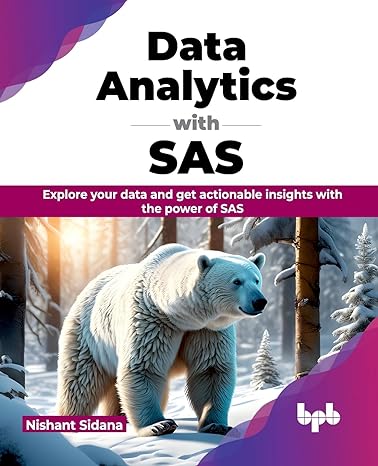Question
Recently, you were presented with cases about data analytics in the real world. One case involved an unfair conclusion about the performance of women who
Recently, you were presented with cases about data analytics in the real world. One case involved an unfair conclusion about the performance of women who worked at a business. It demonstrated that data can sometimes be true, yet unfair. In addition, it highlighted the importance of asking, "Why?" when reviewing the results of data analysis.
Another example involved data analysts prioritizing fairness and going out of their way to ensure their data was as fair as possible. Because they were working with sensitive and potentially biased health data, they chose to collaborate with social scientists in order to better understand the social context behind that data.
If you need to, return to the video to refresh your understanding of the examples before you continue. Then, discuss the first case and how the analysts at that company could improve their process:
What could they have done differently to be fairer in their analysis?
What could have made their conclusion less biased?
Step by Step Solution
There are 3 Steps involved in it
Step: 1

Get Instant Access to Expert-Tailored Solutions
See step-by-step solutions with expert insights and AI powered tools for academic success
Step: 2

Step: 3

Ace Your Homework with AI
Get the answers you need in no time with our AI-driven, step-by-step assistance
Get Started


